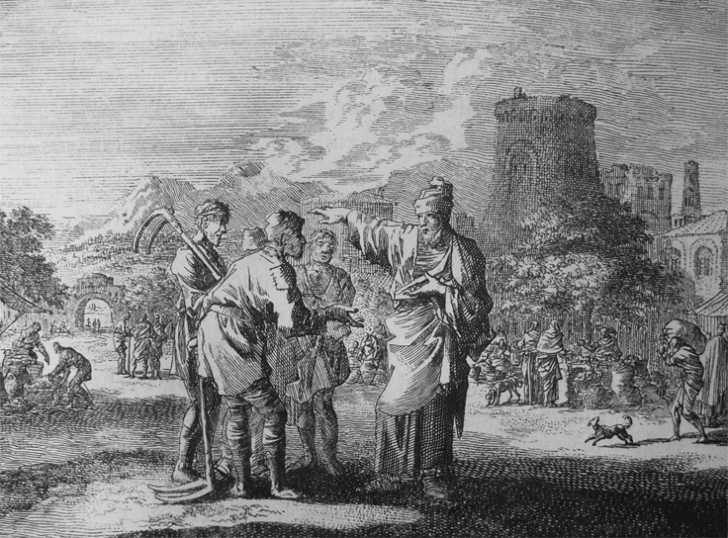As Christians, we need to reassess our response to the Word of God every day. If we become aware of ourselves wanting to argue our opinion over that of the Gospel, let us discipline ourselves to stop, to take a step back, to go to prayer in solitude and silence and to ask God for the graces we need to humbly die to ourselves so that we can be reborn in the truth that is revealed in every word that comes from Jesus’ mouth. This takes great courage. But it is also a matter of good sense, that is a sense of what is really good, in light of the Gospel.
In Matthew 21, Jesus tells a simple story about harvesting in the vineyard. It’s one of many parables He directed at the Pharisees who openly questioned his authority. It is a powerful use of beautiful and poetic metaphor:
The “landowner” represents (God) and the beautiful, fruitful vineyard he built (the Garden of Eden). The “landowner, upon completing his creation “goes away on a trip,” and leaves “tenants” (us) in charge of caring or the vineyard. When Jesus tells what happens, what the “tenants” do, he is revealing a profoundly painful truth to the Pharisees, and to us.

The parable is so beautifully constructed, so powerfully told by Jesus that, like any well-told story, it takes us in. We enter into it, its theme and its characters. We are drawn to this “landowner” who takes such great care in creating a beautiful garden, a new vineyard. We recognize and admire how hard he works and how lovingly he prepares the soil, plants the vines, meticulously builds a protective hedge around it, and digs a wine press in it, then a tower to store the harvest in when it is done. There is a clear sense of his care and loving attention to detail and his desire to see the good fruits of his labors. We are taken into his hopes and dreams for his creation. And we admire the trust he places in those he puts in charge of caring for the garden-like vineyard and we want to believe that their love and respect for the landowner, if not their righteous fear of him, will make them good stewards of the vineyard while he is gone.
Maybe we should not surprised that the Pharisees do not get the fact that Jesus is talking about them in their time. Maybe we should reserve our surprise for the sudden realization that he is talking about us.
Our response to their brazen acts of violence and murder against these servants, our anger at what they do to the landowner’s son, in all honesty, is as “righteous” as that of the Pharisees. Don’t we find ourselves agreeing with the Pharisees’ assessment that the landowner would have every right to put them to death and place other tenants in charge of the land?
Ah, but if so, we are thinking, as the Pharisees were, in merely human terms.
SKM: below-content placeholderWhizzco for FHB

